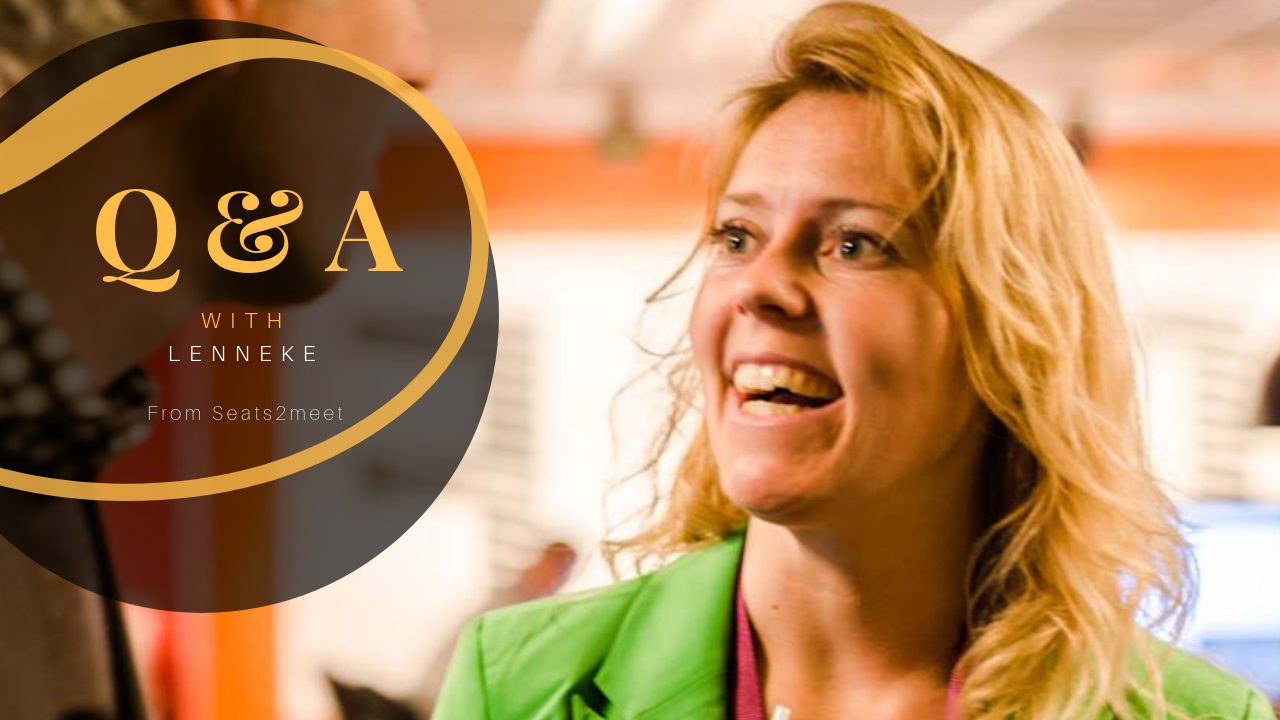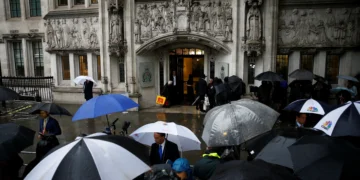Powered by social capital, the Seats2meet Passport connects users across the Seats2meet ecosystem and harnesses the collective knowledge of over 200 coworking spaces and their members.
Mutual support and a spirit of generosity are woven into the DNA of coworking. The core values of the coworking movement—community, openness, collaboration, accessibility and sustainability—reflect these values.
As coworking and the workspace industry continue to grow and evolve, an ongoing challenge for workspace operators is how to build and maintain community as a brand grows and/or scales.
Seats2meet, a workspace brand headquartered in the Netherlands, has developed an innovative solution called the Passport. An app that’s designed to connect people, encourage community, and foster abundance thinking among users, the Passport is powered by social capital across 200-plus coworking locations.
Through the Passport, users can see who is nearby, ask questions to other users the question is relevant to, and more. The Passport’s algorithm, which is called the Serendipity Machine, creates matches between users and experts, events, questions, locations and content.
Allwork.Space spoke with Lenneke van Rossum, Head of International Development at Seats2meet, about the power of social capital, how they aim to create a complete peer-to-peer marketplace that also includes job opportunities and mobility options, their plans to put the Passport on the blockchain and more. Here are the highlights of our conversation.
Allwork.space: I’m very curious about the Seats2meet Passport. Will you tell me more about the thinking behind it?
Lenneke van Rossum: What we see is that, to make a space relevant for any stakeholder—the location owner, anyone who coworks there, or any client or visitor—the strongest thing we can do is bring people together and make sure they meet each other. Then it’s relevant to them and they come back.
There was some research done here in the Netherlands that found when people who haven’t met before are open to meeting each other, they’re in a faster way successful. They find jobs faster, they find projects to work on faster, or they even start a company with someone they’ve met faster.
We saw that the strength is in the meeting part—in bringing people together. Years ago, we created an algorithm to match people and make visible who is in each location and what knowledge they have. We wanted to connect people and lower the barrier for them to speak, so we started doing matchmaking.
Allwork.Space: Matchmaking among coworking space members is a smart idea—a way to organize all that collective knowledge.
The fun and very powerful thing is that users of a powered by Seats2meet location need to pay with social capital, so they need to be open to meeting people and helping people. It’s really a transaction. We can show that social capital really has economical value. That’s the idea we started playing with.
We then created an environment—the Passport—that gives people access to a complete coworking ecosystem where you can pay with you social capital, which you own. Instead of monetary capital in the physical world, you have your Passport in the digital world, with your entrants to the ecosystem—your social capital—which is your economical value. The more you want to give to the system, the more you will get in return.
Allwork.Space: Say I join the Passport and put myself out there as a content strategist or writer. If I help someone with a blog post for 30 minutes, then do some strategy coaching for 30 minutes, does the Passport track all this as currency?
No, it’s up to the people themselves. We connect you, you have to be open to meeting each other, and you decide what you share. If you’re asking money, that’s also okay. If you meet someone and that person needs a temporary social media strategist or content strategist, then you can do business with each other. We don’t interfere once people are matched. It’s up to them to decide what they can give, what they can share, and what’s useful.
It’s hard to measure social capital. The only thing we can measure is the quality of the connection: how far do you go and do you become successful in a faster way. As a number, social capital is hard to track, and we’re not sure if there’s added value for us to try to track that.
The more people give, the more they get in return. We experienced that here in Utrecht, which was the first Seats2meet location. We’ve been here for 11 years now and we found that, by sharing an abundance of space, we received so much in return. It’s based on trust. The more you can share, the more you’ll get in return. It’s up to the people to experience themselves, but we can facilitate the connections and get people in the mindset that we are sharing and we can gain a lot from it.
Allwork.Space: How many Seats2meet locations are there?
Two hundred-plus, with 170 in the Netherlands. We started in the Netherlands and we’ve found that the most organic way to grow is to spread word of our vision behind Seats2meet, which is Society 3.0. That’s spreading all over the world, so people all over the world are registering their location.
We cannot say that each space fully practices the Seats2meet concept, but something triggered them to join the movement. For us, we see that we make it effective in the Netherlands and, at the same time, our ambition is worldwide.
Allwork.Space: So spaces can be part of the Seats2meet ecosystem and still be branded as something else?
We always say that you don’t become Seats2meet, because you’re not—you’re you. Keep your own brand and image. You know your stakeholders and they know you. We don’t want to own them, we just want to facilitate the process that you’re open to share some of your abundance with people who can come by, sit at your location, meet each other, and also share their abundance.
Allwork.Space: It’s impressive when you talk about creating a culture of abundance, social capital, openness and sharing. At least here in the States, it feels like that would not be an easy task. Maybe it’s easier in Europe?
It’s not easy, at all. All over the world it’s the same—our whole education and economic system is based on scarcity as an economic value. Knowledge is power so, if you’re going to give knowledge, people need to pay for it. Even here in the Netherlands, it’s not easy to break those patterns, but now, we’re proof of concept. That’s why it’s easier in the Netherlands for people to see. That’s something we have to show abroad, as well.
Allwork.Space: If I went into a Seats2meet location for the first time and I was met by people talking about social capital and sharing, and people next to me were helping me with projects, and I was helping them, it seems easy to get swept up in that energy and culture.
Yes, it’s quite fun. The Passport is how we facilitate people meeting online. It’s a virtual environment, but it lets people know when they’re checked in to the same location, or nearby, so you can meet face to face.
You can also ask a question in the Passport, but it’s not like a common forum where you post a question in the hopes that someone is reading your question, that the person has the answer, and that they’ll give you the answer. In this case, you post a question into the algorithm and the algorithm sends it out to the right people who have the answers. Someone just posted a question and, in 15 minutes, there were already two relevant answers for that person.
People are also educating each other. It’s contagious how you act on the Passport. Sometimes someone posts a very commercial pitch as a question. People react and let them know that the platform is for sharing knowledge and say that they’d like to help them out with something from their knowledge, but that this is not the right platform for this—that they should try LinkedIn or something.
They are teaching each other the behavior they want on the platform. We don’t think a commercial pitch is a bad thing, people just need to reframe it into a question or a request for help. Then you are more visible, as well, which is another way of commercial pitching—it’s just more on the connecting part, on the human part.
Allwork.Space: What’s next for the Passport and Seats2meet ecosystem? What are you working on?
We have three pillars at the moment. The first is enlarging the network. Our ambition is to make a worldwide impact where social capital is of economical value and where people share their social capital with each other. We need to increase the network in order to make that impact.
We are also working on making the Passport more and more relevant for people. The next feature we’re thinking of is matchmaking with job opportunities. For us, that’s a very common sense thing to do next, to let people post opportunities and have the algorithm find the right people for those opportunities.
The third pillar is to broaden the ecosystem within the Passport. For example, by creating a mobility platform. We know that if someone is booking a seat at 10 a.m., that they need transportation by 9 a.m. If we can matchmake that person at the right moment, with a relevant offer of a mobility platform, such as a car around the corner that’s available, or a sharing bike, or another transportation opportunity, we could make that connection in the Passport. With that, we want to connect all kinds of platforms to each other, so a user has one spot—the Passport—and they can be facilitated by all those services relevant for them. It’s becoming more and more a one-to-one marketplace for the end user.
We’re also thinking of putting the Passport on the blockchain. So, with that, the data isn’t ours, at all. We already say that it isn’t ours, but then we wouldn’t even have it on our own platform—it would really be a wallet of social capital on the blockchain.
Allwork.Space: I know Seats2meet offers a free coworking option. Then, as people grow their business, they need meeting rooms, or office space. Is that the sustainability model?
Yes, and that’s a very sustainable model that you, as an entrepreneur, can adopt, if you want to do something like that. We see now that a lot of different locations are opening their doors, inviting people inside, and not asking money for meeting rooms or coworking seats—they see the added value in the knowledge people bring in.
For example, one of the biggest insurance companies here in the Netherlands doesn’t rent out meeting rooms, they sell insurance. But they’re not well-connected to the rapidly changing world around them because they’re a traditional, old fashioned organization. They wanted to connect to the knowledge, so they registered on the Seats2meet platform.
They don’t need to make money on the meeting space or coworking, so they invite people in and they put their innovation team in the same corner as the Seats2meet users. They mingle, and they do programs, and they do startup pitches. In one year, they’ve brought six new products onto the market in collaboration with people outside their organization.
Allwork.Space: That’s the brilliance of social capital at work in a very traditional industry.
They see the economical value of people walking in—not in dollars or euros, but in the long-term. They see it in the innovation and new products and new propositions and new relevance for their organization.



 Dr. Gleb Tsipursky – The Office Whisperer
Dr. Gleb Tsipursky – The Office Whisperer Nirit Cohen – WorkFutures
Nirit Cohen – WorkFutures Angela Howard – Culture Expert
Angela Howard – Culture Expert Drew Jones – Design & Innovation
Drew Jones – Design & Innovation Jonathan Price – CRE & Flex Expert
Jonathan Price – CRE & Flex Expert












